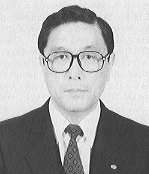
It is my pleasure to announce that the fourth World Congress on Railway Research, WCRR'99, will be held at Railway Technical Research Institute, RTRI, in Kunitachi, Tokyo, from October 19 to 22 this year. The main theme of this conference is "New Technologies Create New Opportunities for the Railways and Society of the 21st Century."
Since there will be no WCRR conference in the year of 2000, WCRR'99 will be the last WCRR conference in this century and the next one, scheduled in 2001 will be the first WCRR in the 21st century. At the WCRR'99 conference, sessions will be organized on the themes of various new technologies suitable for creating railway systems for 21st century. Based upon the results of these sessions, WCRR in 2001 will follow and the organizing members also have the perspective of accumulating the shared experiences to pursue "New Technologies for the 21st Century Railways" under the framework of WCRR conferences.
WCRR has originated in the International Seminar in 1992, which was held for celebrating the 5th anniversary of RTRI. The speakers of the seminar, all of whom are top R&D executives of major railways in the world, later formed the organizing committee and the first WCRR congress was held in Paris in 1994, followed by WCRR'96 in Colorado Springs and WCRR'97 in Florence.
While the history of WCRR has developed, the railway systems in Japan has also accomplished new technologies such as the inauguration of Yamagata, Akita, and Hokuriku Shinkansen lines, the speed-up of Tokaido and Sanyo Shinkansen lines, the speed-up of narrow-gauge lines by introducing tilting trains, and advanced train control system with new data processing technology. RTRI has also made significant technological progress in these years. It has started the test running on the Yamanashi Maglev Test Line and succeeded in the ultra-high-speed running at 500 km/h. Furthermore, RTRI realized the speed-up of Shinkansen and conventional lines, and built Maibara large-scale, low-noise wind tunnel which will contribute to the R&D to solve noise problems.
| October 19 | Opening session, oral sessions, and poster sessions | ||
| October 20 | Oral sessions and poster sessions | ||
| October 21 | Closing session and technical tours | ||
| October 22 | Technical tours | ||
| October 23 | Technical tours |
The technical tours are planned to offer the participants a variety of opportunities to see new Japanese railway technologies including the test rides on the Maglev test train arranged by JR Central and RTRI.
Responding to the call for papers distributed last year, more than 450 abstracts for paper presentation have been sent by the deadline from around the world. Among all the abstracts, approximately 120 were submitted by Japanese authors, mainly by JR group people, and more than 330 were by other countries.
As their main theme, the last three WCRR congresses shared the aspiration for international collaborative research in railway technologies. Meanwhile, the WCRR'99 conference secretariat is seeking a conference where the Japanese railway engineers and researchers, mainly comprising JR people, can discuss "new technologies for the 21st century railways" with world railway researchers based upon their R&D results, and promote collaboration for the future development of railway systems.
I am determined to hold WCRR'99 conference successfully, hoping that world railway engineers discuss their R&D results there, cooperate and learn from each other, and finally contribute to further development of environmentally-friendly railways as a major surface transportation mode in the 21st century society.